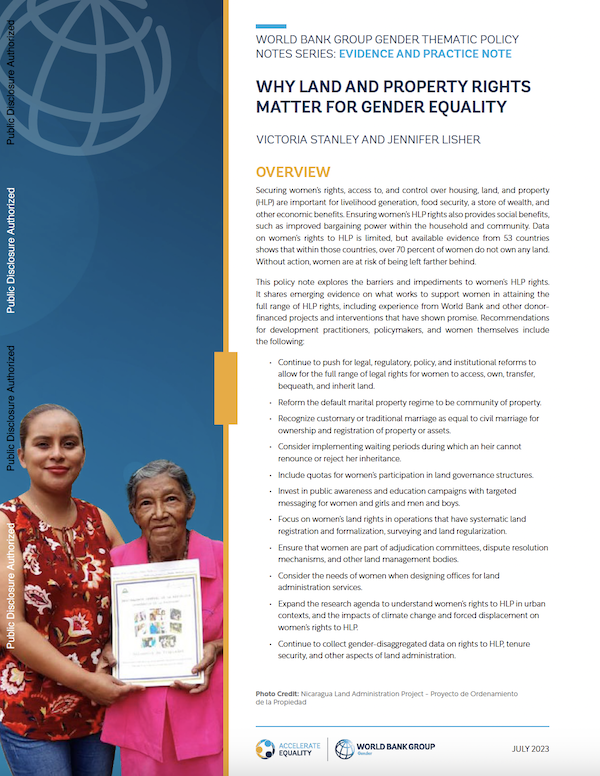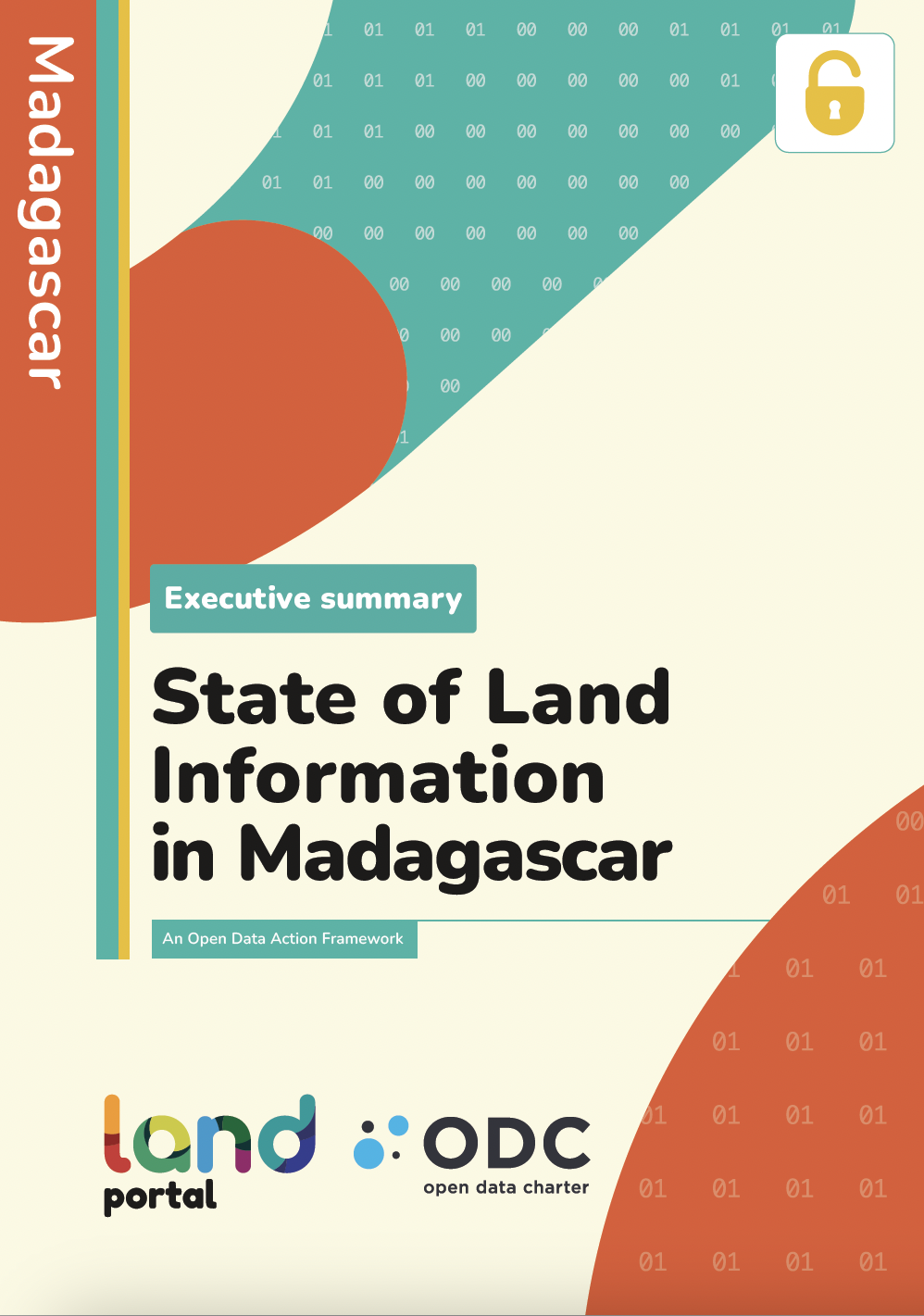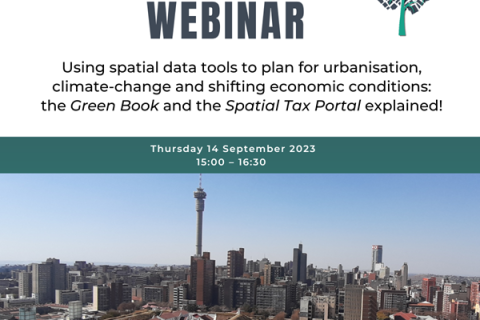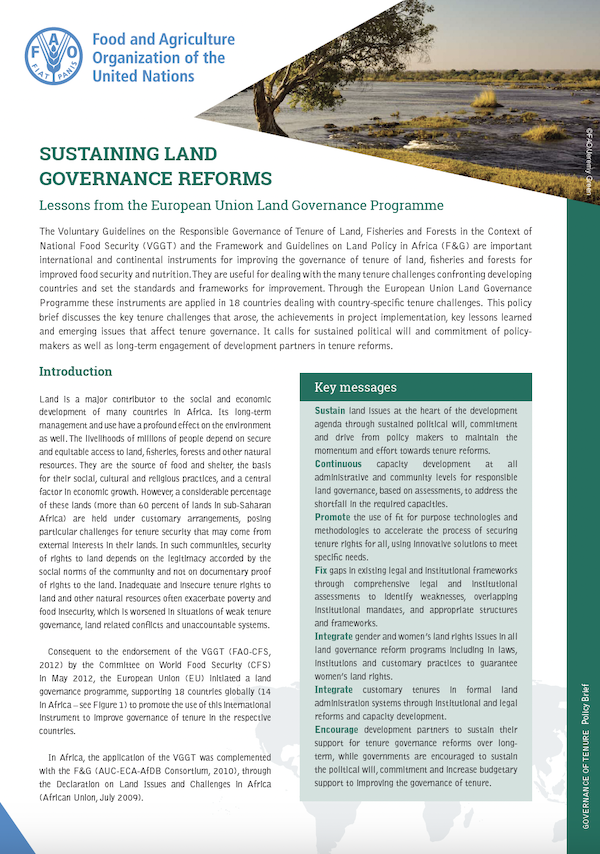
Topics and Regions
Neil Sorensen joined the Land Portal as its Communications Specialist in October 2015. He has extensive experience leading communications for international organizations and developing relationships with civil society, donors, intergovernmental agencies, the media and the private sector. Previously, Neil worked for the International Fund for Agriculture Development (IFAD) as a Governing Bodies Officer and Strategic Adviser to the Secretary of IFAD. He has also led communications for three international organizations, including the International Land Coalition, the International Federation of Agricultural Producers (IFAP) and the International Federation of Organic Agriculture Movements (IFOAM). He holds a Master’s degree in Global Diplomacy from the University of London School of Oriental and African Studies (SOAS) as well as a Bachelor’s degree with a double major in German and Sociology from St. Cloud State University.
Details
Location
Contributions
Displaying 141 - 150 of 1156From Theory to Practice: Exploring the Implementation of Responsible Land Investments in Africa
Land governance in Africa faces various challenges,including weak legal frameworks and insufficient institutional capacity. Responsible land investmentsare vital for sustainable development and require the active participation of all stakeholders. The project component "Responsible Governance ofInvestments in Land," funded by the European Union and the German Federal Ministry for Economic Cooperation and Development, aims to promote responsible investments in Ethiopia, Laos, and Uganda.
Why Land and Property Rights Matter for Gender Equality
Securing women’s rights, access to, and control over housing, land, and property (HLP) are important for livelihood generation, food security, a store of wealth, and other economic benefits. Ensuring women’s HLP rights also provides social benefits, such as improved bargaining power within the household and community. Data on women’s rights to HLP is limited, but available evidence from 53 countries shows that within those countries, over 70 percent of women do not own any land. Without action, women are at risk of being left farther behind.
Executive Summary: State of Land Information in Madagascar
This report on the land data ecosystem in Madagascar is the first step towards providing a baseline and diagnostic tool to inform conversations around land and data governance. It aims to complement existing initiatives to improve the accuracy and extent of land data in Madagascar and identify opportunities to improve public access to all forms of land information.
State of Land Information in Madagascar
This report on the land data ecosystem in Madagascar is the first step towards providing a baseline and diagnostic tool to inform conversations around land and data governance. It aims to complement existing initiatives to improve the accuracy and extent of land data in Madagascar and identify opportunities to improve public access to all forms of land information.
Using spatial data tools to plan for urbanisation, climate-change and shifting economic conditions
In this webinar we explore and discuss two multi-partner platforms that process large datasets and provide tools to support decision making in complex, dynamic urban and regional environments. What impacts are they trying to achieve? How do they enhance efforts to engage with the information so produced?
Fair compensation in large-scale land acquisitions: Fair or fail?
Despite the existence of a legal framework defining the right to fair compensation, and notwithstanding the vast literature on transnational and domestic land deals, no theory has been developed so far to allow for a specific analysis of the economics of fair compensation in large-scale land acquisitions (LSLAs), limiting our understanding of the underlying reasons of success or failure of this important legal protection mechanism.
Sustaining Land Governance Reforms
The Voluntary Guidelines on the Responsible Governance of Tenure of Land, Fisheries and Forests in the Context of National Food Security (VGGT) and the Framework and Guidelines on Land Policy in Africa (F&G) are important international and continental instruments for improving the governance of tenure of land, fisheries and forests for improved food security and nutrition. They are useful for dealing with the many tenure challenges confronting developing countries and set the standards and frameworks for improvement.
Responsible Scaling of Fit-for-Purpose Land Administration: Balancing Tech & Governance Challenges
Join us for a thought-provoking webinar that explores the challenges and future directions to scale Fit-For-Purpose Land Administration (FFPLA) based on on-the-ground experiences. FFPLA approaches are broadly recognized and applauded for being more affordable, faster and flexible (in terms of spatial identification) than conventional land administration methods.
Unleashing the Data Revolution: Empowering Land Governance through Open Metadata
A new publication titled "The Role of Metadata and Open Data in the Innovation Cycle of Land Administration" puts the spotlight on this dynamic domain. This publication offers valuable insights into the significance of open data and structured metadata, and how they can revolutionize land administration processes worldwide. By delving into the core principles of open data and metadata, this publication offers a comprehensive understanding of how these tools can be leveraged to foster innovation and drive positive change in the land governance sector.









